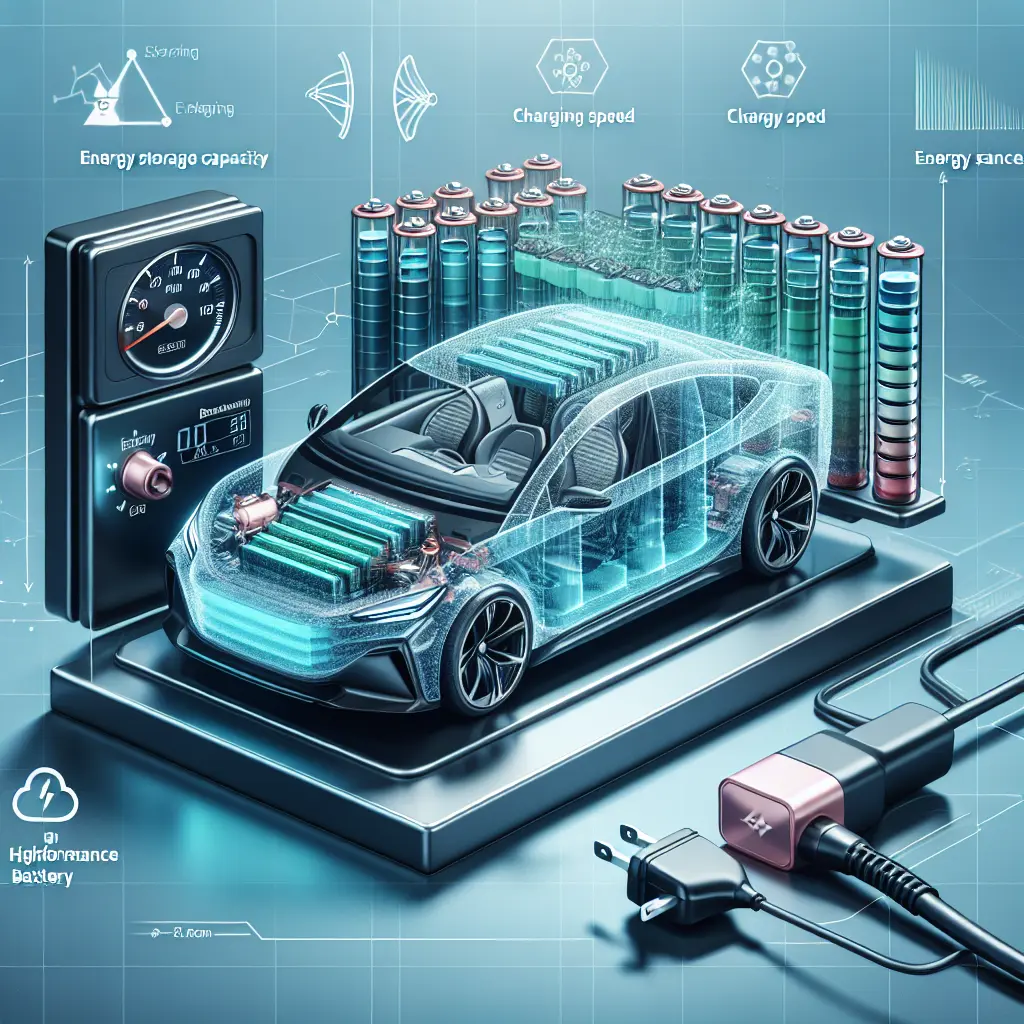
The electric vehicle (EV) industry is on the brink of a technological revolution, driven by a relentless pursuit of innovation in EV battery technology. As we delve deeper into the realm of electric vehicles, it's essential to understand how recent advancements in battery technology are shaping the future of transportation. The impact of these innovations spans increased EV range, enhanced battery efficiency, and a marked improvement in overall vehicle performance.
Innovations in EV Battery Technology
Electric vehicle battery innovations are the cornerstone of the evolving EV landscape. One of the most significant advancements is in lithium-ion battery technology, which has seen considerable improvements in energy density. Energy density directly correlates with how much power can be stored in a battery relative to its size, thereby determining the range of an EV. Companies like Tesla and CATL are at the forefront, continuously pushing the boundaries to create batteries that are not only more powerful but also cost-effective and durable.
The development of solid-state batteries for EVs represents another groundbreaking shift. Unlike traditional lithium-ion batteries, solid-state batteries use a solid electrolyte and offer higher energy densities and enhanced safety due to lower risks of fire or explosion. Companies such as QuantumScape and Toyota are leading efforts in this arena, promising a future where EVs can charge faster and travel longer distances on a single charge.
Battery Efficiency Improvements and Management Systems
Improving battery efficiency involves enhancing the rate at which a battery can charge and discharge energy. Fast charging technology is pivotal here, reducing downtime for EV users and making electric vehicles more appealing. Innovations such as silicon anode technology help increase the capacity and efficiency of lithium-ion batteries, thus supporting faster charging capabilities.
Battery management systems (BMS) are also crucial as they ensure the optimal performance and longevity of EV batteries by regulating their charge state and temperature. Effective thermal management in EV batteries further enhances their efficiency and lifespan by preventing overheating, which can degrade battery cells.
Sustainable Practices and Recycling
As the demand for EVs grows, so does the need for sustainable battery materials. Researchers are exploring alternatives to rare and expensive materials currently used in batteries, such as cobalt and nickel. Companies are also focusing on battery lifespan extension and recycling methods to minimize environmental impact. For instance, Tesla has made significant strides in recycling old batteries, transforming them into new battery cells.
The Business Impact and Market Trends
The surge in EV adoption has significant economic implications, illustrated by recent business developments. Ola Electric's launch of three new electric bikes on Independence Day as reported, indicates a growing trend where companies are expanding their EV portfolios to cater to diverse consumer needs. Furthermore, integrating their own cells into EVs by Q1 FY26 suggests a strategic move towards self-reliance and cost reduction in EV batteries.
Audi's collaboration with Huawei to use its driver-assist system in upcoming models like the A5 and Q6 e-tron highlights the convergence of EV technology with advanced electronics and software, enhancing the overall vehicle performance and safety.
Global Initiatives and Environmental Impact
The global push towards cleaner energy sources is palpable. For instance, efforts to monitor air pollution using AI in South Africa underscore the environmental benefits of transitioning to electric vehicles. Similarly, California's largest electricity provider PG&E’s focus on energy storage illustrates the integral role of electricity in supporting the EV infrastructure.
Standards and Regulations
The call for standardized technology in the EV sector is gaining momentum. Standardizing aspects like charging systems could streamline operations and enhance user compatibility across different brands and regions, ultimately speeding up EV adoption.
Looking Ahead
The future of electric vehicles is invariably tied to the progress in EV battery technology. With upcoming financial results announcements from companies like Li Auto Inc., stakeholders are keenly watching how advancements in EV technology are translating into economic terms.
Conclusion
Electric vehicle battery innovations have set the stage for a transformative era in transportation, marked by increased EV range, improved efficiency, and greater sustainability. As we continue to witness advancements like solid-state batteries and sustainable materials, the potential for electric vehicles keeps growing exponentially.
As we look forward to cleaner, more efficient, and more adaptable transportation options, it's clear that the journey of innovation is far from over—it's just getting started.
Happy driving into the future, Eric Stanton